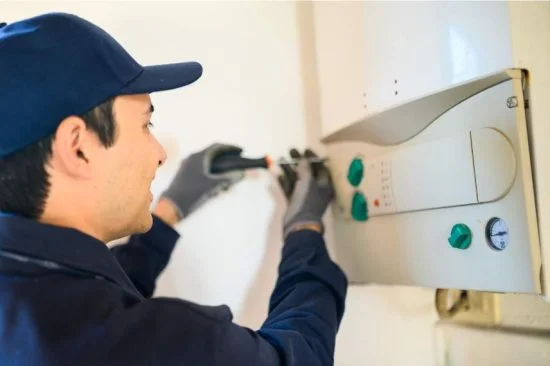Water heaters are an essential component of modern living, providing us with hot water at our fingertips. With these at your side, you can enjoy a relaxing hot shower or delve into a bathing tub filled with warm water in frosty winters. However, like all appliances, they can occasionally develop issues. A common one for homeowners is when their water heater leaks; seeing water pooling around it can be distressing and lead to potential damage if left unchecked. In this article, we will uncover common reasons behind leaky water heaters as well as ways to address them.
Understanding the Basics
Before diving deeper into water heater leaking, it’s essential to realize that water heaters contain numerous components that may malfunction and lead to leakage issues. These sources could range from simple or more complex problems depending on age, maintenance history, and model of the unit. The water heater leaking may be a sign of the need for water heater repair and replacement in case it is beyond repair.
9 Common Reasons For Water Heater Leakage

Faulty Drain Valve
Sign: Mild dripping around the drain valve area.
Cause: If used for maintenance or replacement purposes, drain valves can become loose or faulty over time, leading to minor dripping at their points of use.
Solution: Make sure all fittings are closed securely – if there are leaks even after binding tightly, then consider purchasing new valves as soon as possible.
Excessive Pressure Inside the Tank
Sign: Water spewing out of the temperature & pressure relief valve or from its top.
Cause: If temperatures are set too high or external water pressure exceeds expectations, an overflow can occur and cause an overflow.
Solution: Lower the water heater’s temperature. If this doesn’t help, an expansion tank or pressure-reducing valve might be necessary to increase pressure reduction.
Old Tank
Sign: The water heater is leaking from its bottom or surrounding the heater.
Cause: Over time, sediment accumulates at the tank’s bottom, leading to corrosion and eventually creating tiny holes that allow leakage of water from beneath it.
Solution: Unfortunately, if your tank has become completely rusted through, replacement is inevitable.
Faulty Temperature & Pressure Relief Valve (T&P Valve)
Sign:: A failed Temperature and Pressure Relief Valve should also be checked immediately as this could also contribute to this issue.
Cause: This valve relieves excess pressure from a tank, and if it malfunctions, it may release too much or no water at all, resulting in high levels of pressure in your tank.
Solution: Unfortunately, if your tank is rusted through, it’s time for a replacement.
Loose Inlet or Outlet Connections
Sign: Water heater leaking from its top.
Cause: Cold and hot water connections can sometimes become loose.
Solution: Tighten them using a pipe wrench – and consider replacing any fittings that have corrosion.
Condensation
Sign: Beads or minor pooling of water on surfaces near a heater.
Cause: Cold water entering a tank and being heated leads to condensation that appears as leakage.
Solution: This is a natural occurrence; if excessive condensation exists, however, check whether all cold and hot water connections have been properly installed.
Internal Tank Issues
Sign: Water heater leaking from the bottom.
Cause: Internal components might become compromised over time and cause leakage from within the tank itself.
Solution: Contact a professional in order to inspect those components thoroughly.
Broken Dip Tube
Sign: Lukewarm water or leaky heater.
Cause: The dip tube directs cold water directly to the bottom of your tank; any issues with it could send hot water up toward the top, leading to overheating or leaks in your system.
Solution: Replace any damaged dip tubes.
Heating Element Gasket
Sign: Water heater leakage around its element sides
Cause: If the gasket around the heating element becomes worn out, leaks could result.
Solution: Switch off both power and water supplies, drain the tank completely, and replace the gasket as soon as possible.
Why It Is Important to Address Water Heater Leak Issues
Aside from being an inconvenience and potential source of property damage, water heater leaks can have other serious repercussions in your home:
Higher Utility Bills: With its increased energy usage, an improperly functioning heater increases utility expenses significantly.
Wasted Water: Even minor leaks can contribute to significant water wastage over time.
Potential Health Risks: Damp and wet areas may lead to mold growth that poses significant health risks.
A Final Verdict
Water heater leaking issues should never be ignored; proper maintenance and timely interventions can prevent minor problems from snowballing into major issues. From tightening tasks to complex internal issues, timely interventions can save both money and time while guaranteeing you continue enjoying those relaxing hot showers.
If you’re unsure about the source or solution for a leak in the water heater, contact Roto Rooter’s plumbing experts. We can identify and repair leaks, whether simple or complex, within a set timeframe. Also, our plumbers are available 24*7 at your service; you don’t have to take tension about emergencies. We are just a call away!